PREVIOUS
Nelson Mandela
July 27 , 2018
2457 days
8916
0
- Nelson Mandela was born on July 18, 1918, in the South African village of Mvezo.
- After the death of his father in 1927, 9-year-old Mandela—then known by his birth name, Rolihlahla literally means ‘pulling the branch of a tree,’ or ‘troublemaker’.
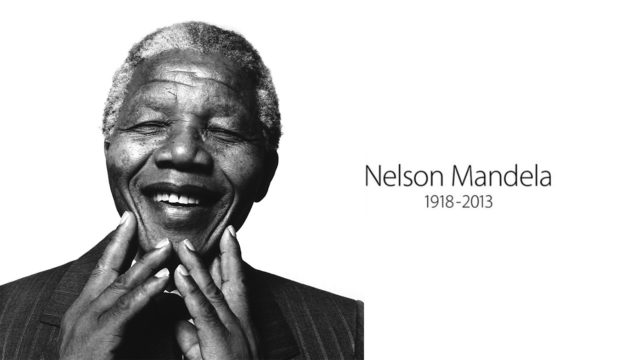
- Nelson Mandela married three times. His last marriage was at the age of 81 to Grace Michel.
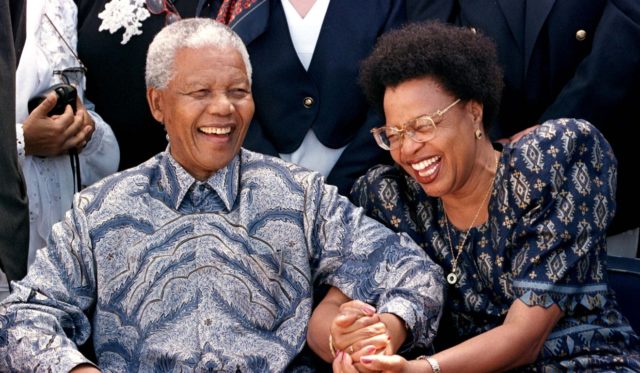
- He is known as “the worlds most famous political prisoner” and “South Africa’s Great Black Hope.”
- He is often called the “Gandhi of South Africa” because of his human values, inspired by Mahatma Gandhi.
- Nelson Mandela died on 5 December 2013 at the age of 95.
Education
- The first in his family to receive a formal education, Mandela completed his primary studies at a local missionary school.
- In 1939 Mandela entered the elite University of Fort Hare, the only Western-style higher learning institute for South African blacks at the time.
- The following year, he and several other students, including his friend and future business partner Oliver Tambo (1917-1993), were sent home for participating in a boycott against university policies.
- In 1944, Mandela joined the African National Congress (ANC) and worked with fellow party members, including Oliver Tambo, to establish its youth league, the ANCYL.
Nelson Mandela and the African National Congress
- Nelson Mandela’s commitment to politics and the ANC grew stronger after the 1948 election victory of the Afrikaner-dominated National Party, which introduced a formal system of racial classification and segregation.
- In 1952, Mandela and Tambo opened South Africa’s first black law firm, which offered free or low-cost legal counsel to those affected by apartheid legislation.
Nelson Mandela and the Armed Resistance Movement
- In 1961, Nelson Mandela co-founded and became the first leader of Umkhonto we Sizwe (“Spear of the Nation”), also known as MK, a new armed wing of the ANC.

- Under Mandela’s leadership, MK launched a sabotage campaign against the government, which had recently declared South Africa a republic and withdrawn from the British Commonwealth.
Nelson Mandela’s years behind bars
- Since 1962 Nelson Mandela spent the first 18 of his 27 years in jail at the brutal Robben Island Prison.
- In 1980 Oliver Tambo introduced a “Free Nelson Mandela” campaign and it fueled the growing international outcry against South Africa’s racist regime.
- In 1982 Mandela was moved to Pollsmoor Prison on the mainland, and in 1988 he was placed under house arrest. On February 11, 1990 Mandela was released.
Nelson Mandela as the President of South Africa
- On April 26, 1994, conducted the country’s first multiracial parliamentary elections in history. On May 10 Mandela was sworn in as the first black president of South Africa.
- South Africa hosted the 1995 Rugby World Cup under the government of Nelson Mandela.
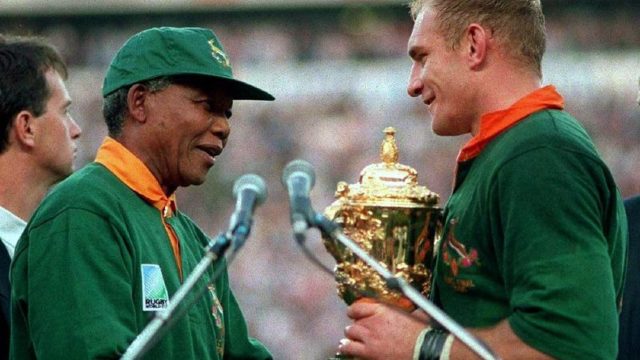
- In 1996 Mandela presided over the enactment of a new South African constitution, which established a strong central government based on majority rule and prohibited discrimination against minorities, including whites.
- On 1999, he retired from politics at the end of his first term as president and was succeeded by his deputy, Thabo Mbeki.
Nelson Mandela Foundation
- The foundation was created in 1999 by Nelson Mandela when he stepped down as the President of South Africa.
Awards
- Nelson Mandela and F.W. de Klerk were jointly awarded the Nobel Peace Prize for anti-apartheid activism in 1993. When Nelson Mandela was awarded the Nobel prize for peace in 1994, he claimed that he owed his success to Mahatma Gandhi.
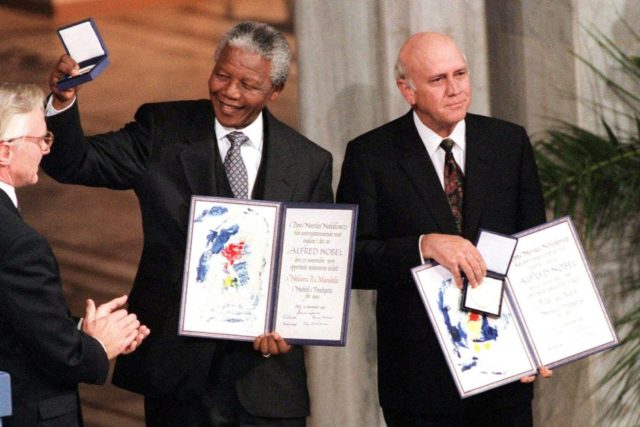
- In 1990, Nelson Mandela became the Second non-Indian recipient of Bharat Ratna, which is the highest civilian award of Republic of India.
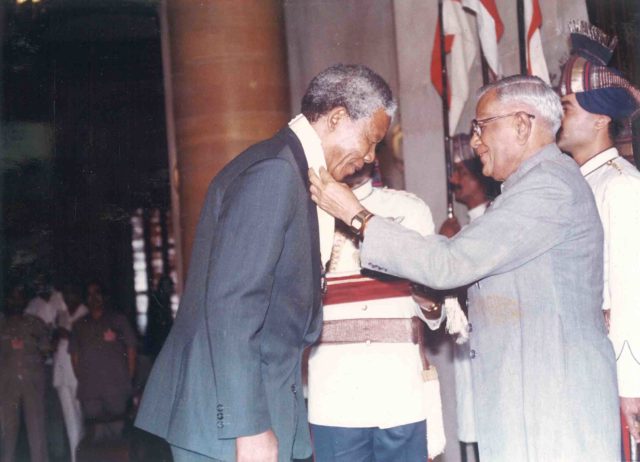
Nelson Mandela’s Books
- Long walk to freedom: The Autobiography of Nelson Mandela.
- Conversation with myself.
Nelson Mandela Day
- The United Nations officially declared 18 July as Nelson Mandela International Day in November 2009, recognizing Mandela’s “values and his dedication to the service of humanity” and acknowledging his contribution “to the struggle for democracy internationally and the promotion of a culture of peace throughout the world”.

- This is the first time that the UN has declared an International Day in honor of a person.
Conclusion
- As a sign of respect, many South Africans referred to Nelson Mandela as Madiba.
- ‘Black Man In A White Man’s Court’ - This was Mandela’s first court statement, in Pretoria, October 1962.
- ‘An ideal I am prepared to die for’ - This is considered as Mandela’s best speech after he had already been sentenced for two years.
- - - - - - - - - - - - - - -
Leave a Reply
Your Comment is awaiting moderation.


